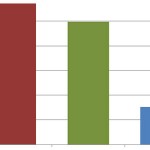Ev’rybody’s Talkin’ ’bout ALEC-Seein’, Rep. Jon Brien, Taxes Bein’, Workers’ Pleadin’
Whisper the name Rhode Island in the New York Times and the Earth shakes. Or Twitter does. In the space between Connecticut and Fall River, Massachusetts, anyway.
And that’s what Joe Nocera did, with a column striving to pin the woes of the City of Woonsocket on ALEC:
Or maybe it’s not so incredible. It turns out that one of them, Jon Brien, is also on the national board of the American Legislative Exchange Council, or ALEC. Although ALEC is probably best known for its support of the Stand Your Ground law in Florida, the conservative group has a very clear agenda for dealing with state budgets. It wants to shrink them. Although Brien has denied that he is applying the ALEC philosophy to his small city, it looks, in fact, as if that’s exactly what he is doing. It’s not pretty.
Woonsocket’s problems stem from the decision of Rhode Island’s previous governor, a Republican named Don Carcieri, to balance the state’s budget by cutting state aid to the cities. All of Rhode Island’s poorer cities had become dependent on that aid, so when the economy soured, they essentially ran out of money. Providence had to renegotiate the retirement benefits of its municipal workers. Central Falls actually sought bankruptcy court protection — and a receiver was put in charge of its finances. As for Woonsocket, its current difficulties came to light last fall when the school district revealed a huge, unanticipated budget shortfall.
As Ian Donnis reports, Rep. Brien (a Democrat, by the way) dubs Nocera’s missive “a hit piece.” David Scharfenberg, of the left-wing alternative paper the Providence Phoenix, insists that Nocera’s roping ALEC into the Woonsocket mess is “far-fetched.” Josh Barro took to Bloomberg.com to argue that Nocera is “wrong, wrong, wrong”; Woonsocket has collected a budget-busting level of debt, which WPRI’s Ted Nesi has found a Moody’s chart to illustrate.
That a Times columnist would stretch the bounds of logic for a political hit on an effective conservative organization is perhaps not news. That he quotes local progressive-activist journalist Bob Plain might be, at least locally. The tune that Plain uses the spotlight to sing, though, deserves broader consideration:
Here’s the rub. Pensions are not the core problem in Woonsocket. Yes, Woonsocket has a pension shortfall, but it is more manageable than many other places and has almost nothing to do with the current crisis. “The meme in Rhode Island is that if there is a problem, you can trace it back to the public employees,” says Bob Plain…
Nocera’s naked error on pensions and public debt is not the only point against Plain. Even modestly observant readers will note that neither of them bothers to consider the role of ever-growing school budgets in the face of a 10-percent drop in enrollment.
Still, Nocera was clever enough to build in an escape hatch when he wrote that “cities had become dependent” on state aid. Thus, he transfers blame to the folks who sought to reverse that dependency. He makes no mention, naturally, of the fact that the Democrat General Assembly ultimately implemented the cuts but refused to pass along Governor Carcieri’s proposals to empower cities and towns to reduce expenditures, such as through the elimination of state mandates. Disputants will pick a side to blame and stick with it.
Be the ideological battle as it may, observing that many of the decisions that led to Woonsocket’s debt suffocation predated the Carcieri-era cuts is only the first depth of analysis. Woonsocket is arguably Rhode Island’s poster child for deeper problems. Between the 2000 and 2010 Census surveys, Woonsocket was near the top of the in-state list for lost population, employment, and median income. Consequently, the city slipped toward status as the poorest in Rhode Island, with Providence and Central Falls actually gaining ground.
From the first quarter of 2011 to the first quarter of 2012, Woonsocket’s single-family housing market was one of just a few in RI to see, simultaneously, a drop in sales (-22.6%), growth in inventory (28.8%), and a drop in median sales price (-21.3%). That’s a sign of a fleeing population.
Ultimately, a drop in public-school enrollment is not only notable as evidence that the district should be trimming expenses. It is also an indication that young, active, community-building families are not filling the city with vibrant activity and tax revenue.
Two lessons should be gleaned from this painful picture. The first is that limiting tax growth and shrinking government is more than a conservative shibboleth; in Woonsocket’s case, it might just be a practical imperative to stop the bleeding. The second is that Plain is correct: public employees are not the heart of the problem. Rather, the heart of the problem is the whole government-centric approach of Rhode Island governance. The state needs a dramatic change to spark the private, self-reliant action that can fill the economic balloon long term.
ALEC is clearly not the bogeyman that Nocera needs to pin Woonsocket’s fate on small-government policies, but maybe it ought to be a guide for moving forward.



